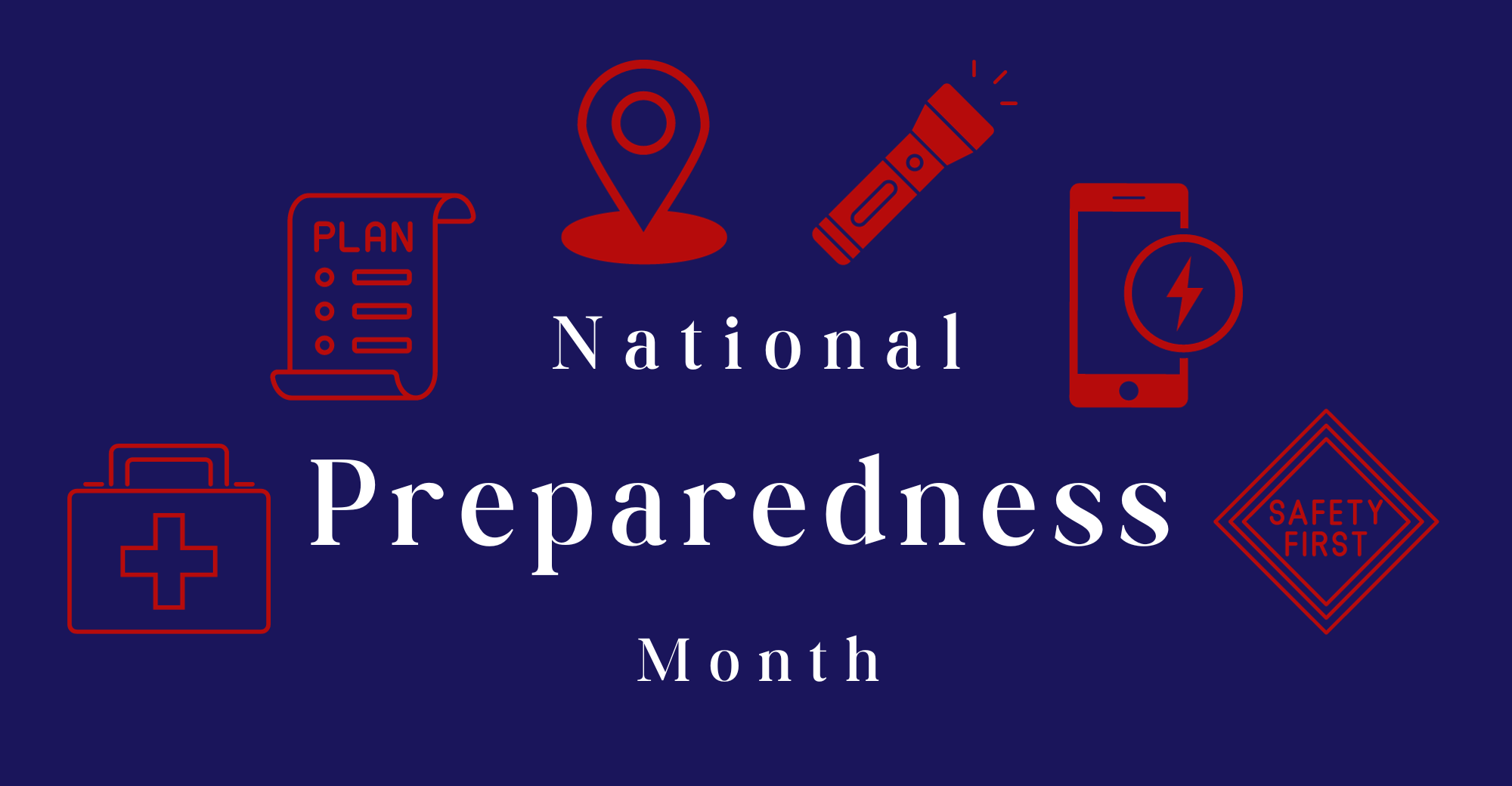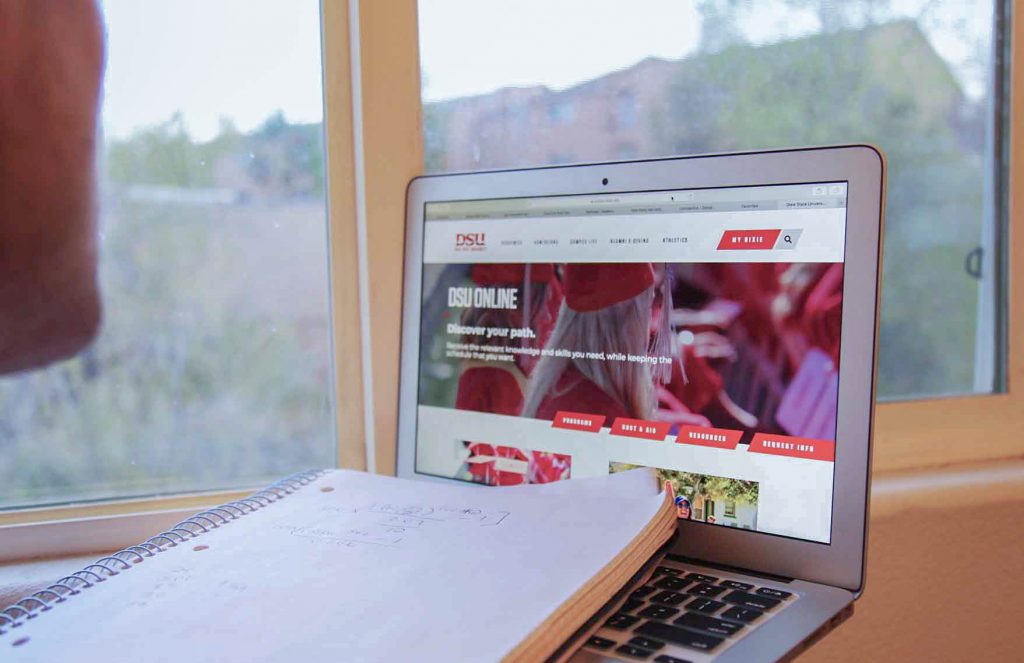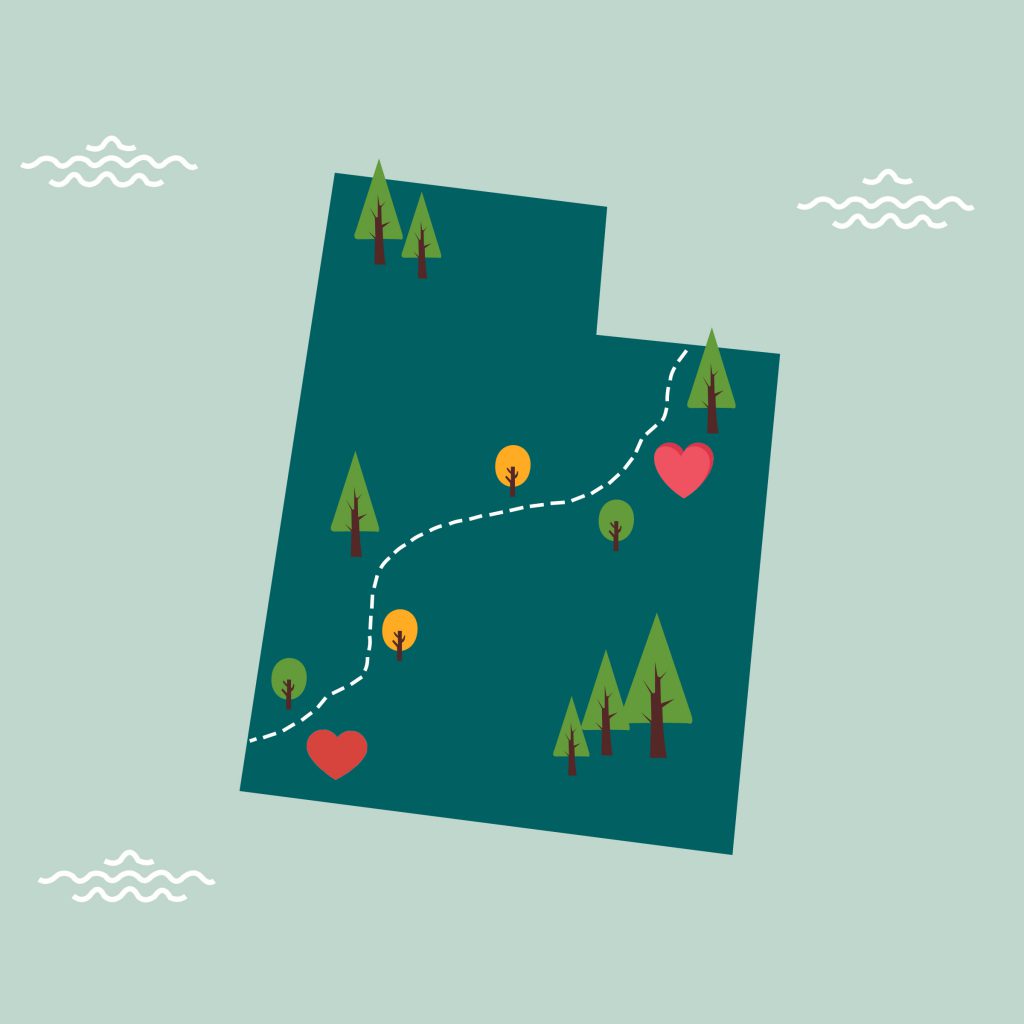College can be a nerve-racking time, but learning to do it on your own can be even scarier.
This month is National Preparedness Month where the public is focused on learning and developing ways to prepare themselves for unfavorable circumstances, whether that may be an assault, natural disaster or financial crisis.
At Utah Tech University, safety is a top priority. The school offers many departments for its students, faculty and staff to reach out to if the safety need occurs. Some of these departments include:
- Enterprise Risk & Emergency Management
- University Police
- Fire Marshal’s Office
- Parking Services
- Health & Safety
The newest addition to this list is the Incident Command Trailer. It is a trailer that can move across campus and be used as an emergency treatment center or a distribution center for medical supplies, vaccines and more.
Josh Thayn, chief safety officer and executive director of University Safety & Risk Management, said this trailer will be able to save thousands of dollars and last a very long time.
Thayn said in a Utah Tech press release, “No matter what emergency or special event operations we may face, the trailer is built to be versatile and fit our needs.”
Natural Disasters
In St. George, we are prone to natural disasters such as flooding, high winds and extreme heat. For those students who are not from here or who are and are living on their own for the first time, having natural disaster events happen around them can be intimidating. There are a variety of things individuals can do to stay safe if these events occur.
If there is an emergency where the roads are flooding and you are stuck somewhere, the first thing to do is get to higher ground. That will get you away from the rushing water and away from anything flowing through the water that may cause harm.
The second thing you should do is to try to stay in one place, whether that is a tree that you have to climb up or a building you’re stuck in. Waiting out the worst of the flood will allow you to have the best chance of staying safe.
Oftentimes, the roads will flood on or around campus. Staying off the roads while the flow is high is important for your safety and the safety of others.
Organizations to call in a disaster include 911, police dispatch; 211, health and human services; AAA, car assistance; or the campus police.
Medical Emergencies
At the Foam Dance at the beginning of the semester, there were a few medical emergencies where students had passed out. To avoid medicinal emergencies, it would be wise for students to always be aware of their surroundings. Watch those around you with care, and be sure they are OK and not having any issues.
If these incidents do occur, immediately give the person who is in trouble some space to breathe and to allow the emergency team to get to them swiftly and safely. Alert those around you of the issue and do your part to allow the situation to be resolved quickly.
Knowing what to do if a medical emergency arises at a party is important because the amount of issues that can occur are vast. Things like choking, food poisoning, falls, breaking bones, overheating and suffocation are common accidents.
Medical emergencies don’t just occur during parties and events. They can happen at any other given time. In housing with students, accidents happen all the time. Whether that is an allergic reaction, burns, cuts or falls, reacting quickly and calmly is the best start to helping fix the problem.
Take it one thing at a time. Assess the situation, get in contact with an emergency hotline, and then make sure the person who is in trouble is helped in whatever way that is needed.
Spencer Nickel, a management major from Tacoma, Washington, said: “I’m always a little on edge at campus events but especially at the dances. I could be wrong, but it doesn’t feel like security is that tight and the door is open for something bad to happen.”
Utah Tech’s Safe app is always being promoted around campus. Students can use this app to get an escort home, quickly access help in an emergency and get help jump-starting their car.
Assault
English professor Susan Ertel said, “One in three women in Utah; one in seven men in Utah. Those are just the reported cases [of sexual assault].”
Recent announcements of assaults have set many students on edge. If you or someone you know is in a situation where they feel uncomfortable, a few options of resources include visiting the Dove Center, using the Safe UT app and calling 911.
Ertel has spoken out in the past about the Dove Center and her work with them on promoting the Intimate Partner Violence Lethality Assessment, where people may report cases of assault with a five-minute survey.
Madi Bishop, a sophomore English major from St. George, said, “If you don’t feel safe or if something has already happened, the St. George Fire Department around the corner is a safe place.”
Students are often afraid to report assault incidents because of feelings of embarrassment or fear. It is always better to report these cases, if not for that specific student’s benefit than for others’ benefit.




